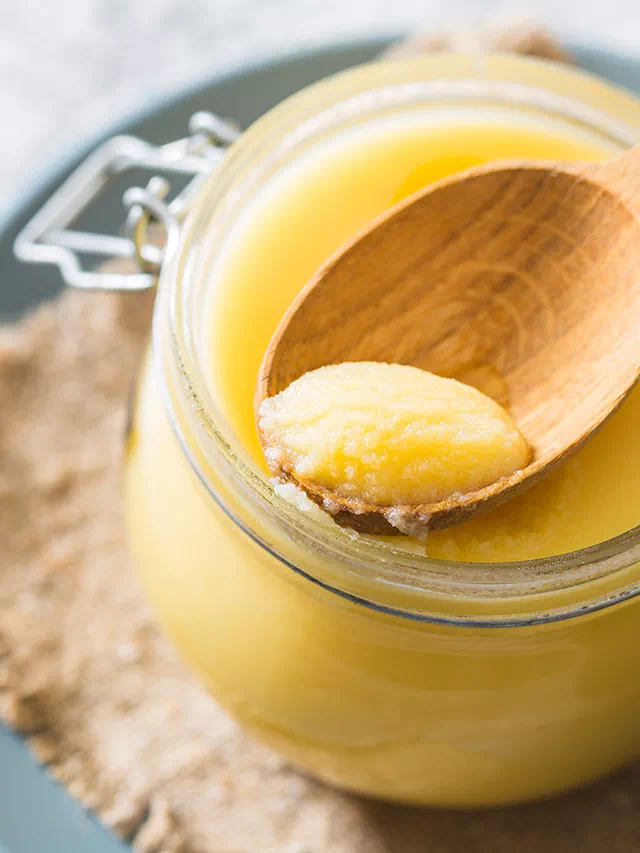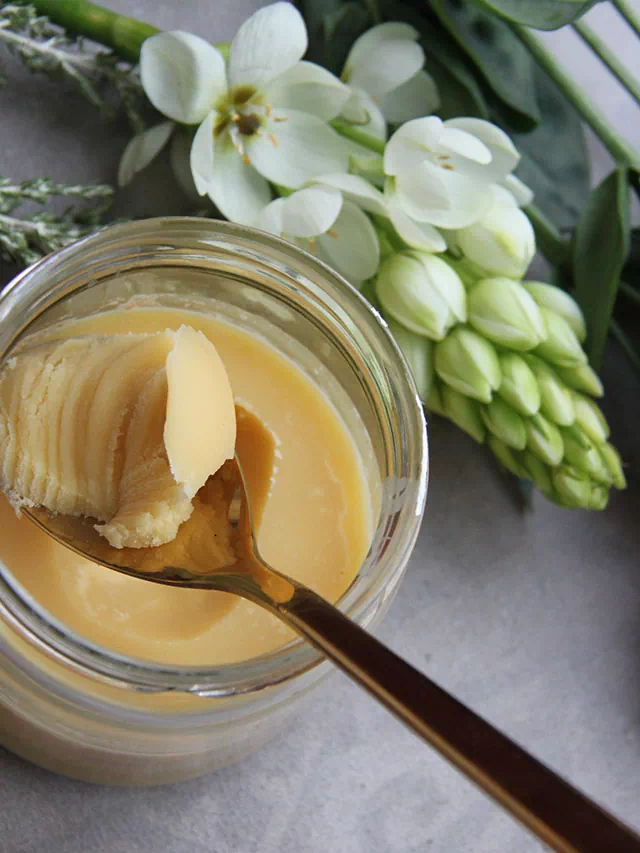However, it is important to note that not all types of fat are equal and ghee has some health benefits such as it is rich in fat-soluble vitamins like Vitamin K and Vitamin E. Consuming ghee in moderate amounts as part of a balanced diet and regular exercise routine is a better approach.
Ghee is a type of clarified butter that is commonly used in Indian cuisine. It is made by heating butter to separate the milk solids and water from the fat. Ghee is a rich source of saturated fats, which can contribute to weight gain if consumed in excess. However, some research suggests that ghee may have beneficial effects on cardiovascular health when consumed in moderate amounts.
It is important to keep in mind that consuming any type of fat in excess can lead to weight gain, especially if it results in consuming more calories than your body needs. Therefore, it is important to consume ghee in moderation and balance it with a healthy diet and regular physical activity to maintain a healthy weight.
It is also worth noting that not all belly fat is created equal, as visceral fat (the fat that surrounds your organs) is considered much more dangerous for your health than subcutaneous fat (the fat under your skin) . A healthy diet, regular physical activity and a healthy lifestyle are important factors that can help you reduce the risk of health problems associated with belly fat.
In addition, It’s important to note that everyone’s body is different and how it responds to different foods can vary. Some people may find that consuming ghee regularly leads to weight gain or an increase in belly fat, while others may not experience the same effects.
It’s also important to consider that ghee is often used in small amounts in cooking as a flavor enhancer and is not typically consumed in large amounts. Consuming large amounts of ghee or any other type of fat can lead to weight gain and an increase in belly fat.
There are other factors that can also contribute to belly fat such as lack of physical activity, stress, lack of sleep, hormone imbalances and genetics. Therefore, it is essential to focus on a healthy lifestyle that includes regular physical activity, a balanced diet, sufficient sleep, and stress management to maintain a healthy weight and reduce the risk of belly fat.
In summary, moderate consumption of ghee is unlikely to cause an increase in belly fat, but like any other type of fat, it should be consumed in moderation as part of a balanced diet. It’s important to pay attention to your body a nd how it responds to different foods, and focus on a healthy lifestyle to maintain a healthy weight.
It’s also worth mentioning that ghee has been used in Ayurvedic medicine for centuries due to its potential health benefits. Some studies suggest that ghee may have anti-inflammatory properties, help with digestion, and improve heart health. However, more research is needed to confirm these potential health benefits.
When it comes to weight management, it’s important to focus on overall calorie intake and energy balance. Consuming ghee in moderate amounts as part of a balanced diet can be part of a healthy diet, as long as it doesn’t lead to consuming more calories than your body needs.
It’s also important to note that ghee is a rich source of short and medium-chain fatty acids, which are easily absorbed and metabolized by the body. These fatty acids are less likely to be stored as fat in the body compared to long-chain fatty acids found in other types of fats.
It’s important to remember that weight management is not a one size fit all, what works for one person may not work for another. It’s important to consult a healthcare professional or a registered dietitian to develop a personalized diet and exercise plan that is tailored to your specific needs and goals.





